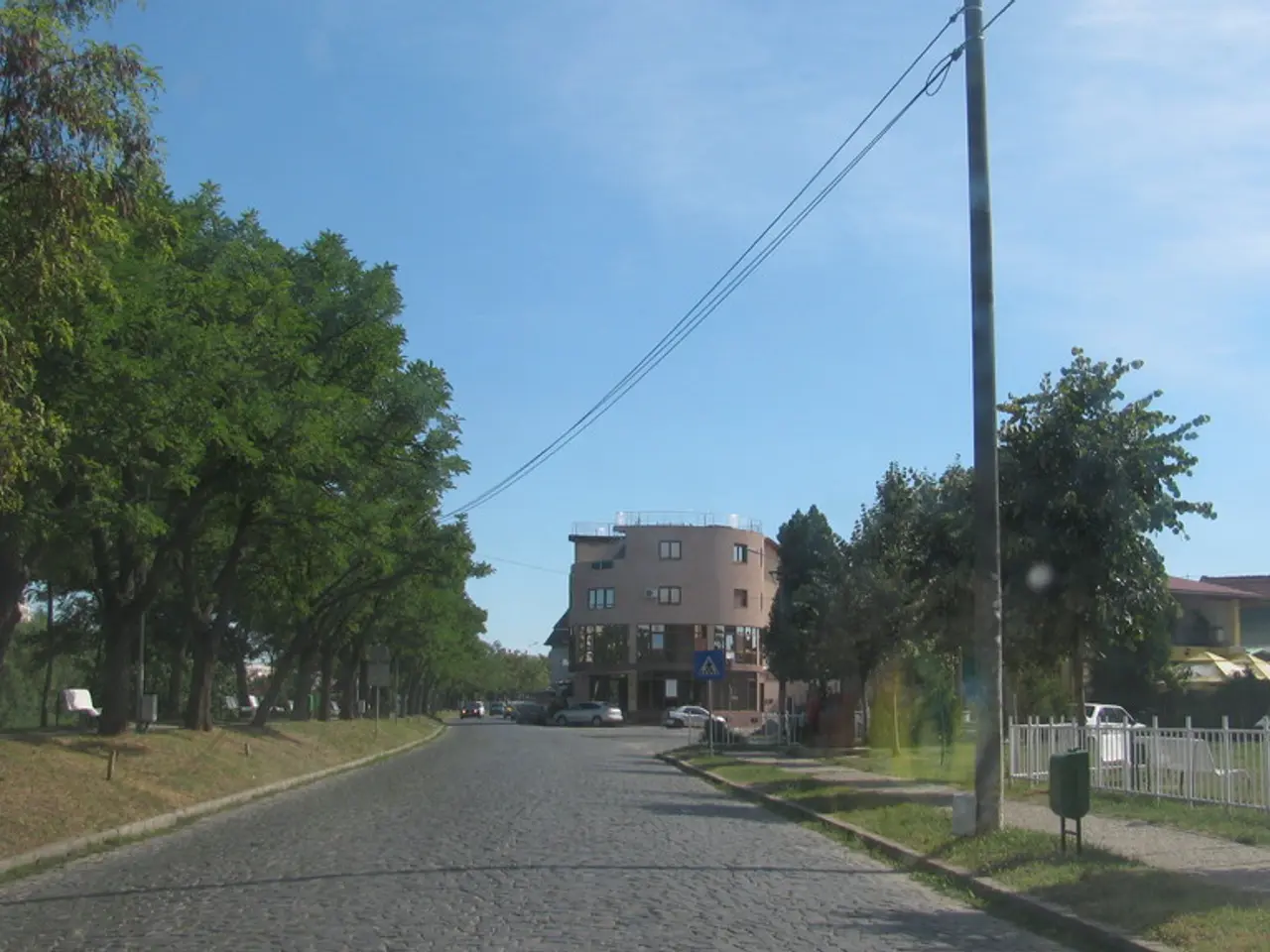Urban Decarbonization Technologies: An Examination of Warsaw's Approach
Warsaw, the vibrant capital city of Poland, is taking significant strides towards a greener future. The city has announced plans to introduce new green building standards later this year, making the use of a building management system, heat pumps, and photovoltaics compulsory in all new public buildings. This move is part of a broader commitment to decarbonize the city and align with the EU's Green Deal.
However, Warsaw faces challenges in its decarbonization journey. The city's heavy reliance on coal and gas for energy supply is a significant barrier. Two combined heat and power plants, which supply heat to 80% of the city's buildings and account for 45% of the city's electricity consumption, run on fossil fuels and are a major barrier to reaching net zero.
In the realm of mobility, lack of cooperation between new mobility providers is a barrier to the implementation of Mobility as a Service (MaaS) in Warsaw. Despite MaaS technology being available on platforms created by Vooom and Take&Drive, these are at a very early stage of commercialisation, and there is no significant public support for MaaS in Poland.
Despite these challenges, Warsaw is pushing forward with its decarbonization efforts. The city has joined the Race to Zero campaign to achieve net-zero carbon emissions by 2050 at the latest, and is also planning to publish a new Climate Action Plan targeting a 40% reduction in emissions by 2030 compared with 2007.
The city is continuously replacing its public fleet vehicles with EV and LNG substitutes. Poland has also embraced digital technologies in the construction and building sector, with Building Automation Systems (BAS) widely used. However, there is no comprehensive legal framework for constructing hydrogen refuelling infrastructure in Poland.
The city's waste processing systems have improved in the past 10 years, but still lag far behind EU averages for recycling and composting. Warsaw's government encourages the use of private electric vehicles (EVs) by offering benefits such as using bus lanes and free parking. Yet, many inhabitants in Warsaw strongly believe in private car ownership, and the public transport system needs improving.
Warsaw is developing its Climate Action Plan and Green City Action Plan with funding from the EBRD Green Cities, the TaiwanBusiness-EBRD Technical Cooperation Fund, and the Government of Poland. The plan is likely to include measures such as building energy renovations to reduce emissions from the extensive building stock, expanding district heating systems integrating renewable or low-carbon heat sources, and the deployment of smart city technologies and local energy communities to optimize energy use and citizen participation.
The report "Sustainable disruption: 12 decarbonising technologies for cities" identifies 12 key technologies aimed at achieving urban decarbonisation. These typically include renewable energy integration, energy-efficient building renovations, smart grids and energy management systems, district heating and cooling systems, electrification of transport and sustainable mobility, green hydrogen and low-carbon fuels, carbon capture, utilisation and storage (CCUS), digitalisation and smart city solutions, local energy communities, green financing mechanisms, nature-based solutions, and sustainable food systems.
While no specific case study or project in Warsaw was found in the search results, it is likely that Warsaw is pursuing measures similar to projects in other European cities like Barcelona or Bergamo, integrating these decarbonising technologies with attention to regulatory and financial structures to support sustainable urban transformations.
[1] European Commission. (2020). European Green Deal. Retrieved from https://ec.europa.eu/info/strategy/priorities-2019-2024/european-green-deal_en
[2] European Commission. (2020). Renovation Wave. Retrieved from https://ec.europa.eu/info/strategy/priorities-2019-2024/european-green-deal/renovation-wave_en
[3] European Commission. (2021). Cities Mission. Retrieved from https://ec.europa.eu/info/strategy/priorities-2019-2024/european-green-deal/cities-mission_en
[4] European Commission. (2021). Smart Cities and Communities. Retrieved from https://ec.europa.eu/info/strategy/priorities-2019-2024/european-green-deal/smart-cities-and-communities_en
[5] European Commission. (2021). Green Infrastructure. Retrieved from https://ec.europa.eu/info/strategy/priorities-2019-2024/european-green-deal/green-infrastructure_en
- Warsaw's ambitions in environmental science, as seen through its commitment to decreasing carbon emissions, align with the EU's Green Deal and the general-news about the European Green Deal.
- The city's plans to incorporate technology such as building management systems, heat pumps, and photovoltaics in new public buildings signify a shift towards a greener lifestyle, but its reliance on coal and gas for energy supply poses a climate-change challenge.
- In the business sector, the implementation of Mobility as a Service (MaaS) in Warsaw faces obstacles due to lack of cooperation between new mobility providers, despite the technology's availability. Such hurdles could affect the city's overall environmental and financial sustainability.
- Despite these setbacks, Warsaw continues to invest in renewable energy, digital technologies, and smart city solutions, aiming to achieve net-zero carbon emissions by 2050. Such efforts are reminiscent of projects in other European cities like Barcelona and Bergamo, with a focus on integrating decarbonising technologies and supportive regulatory and financial structures.




